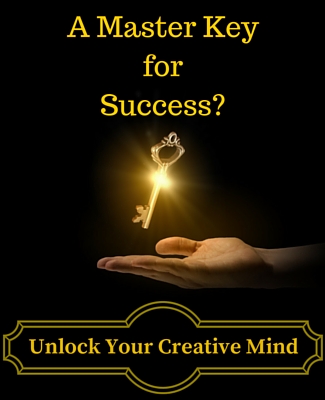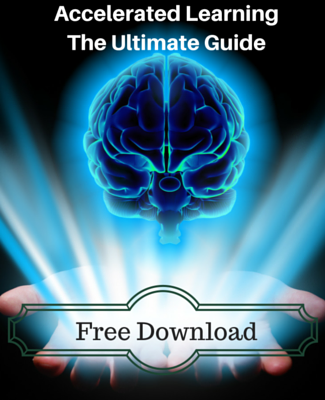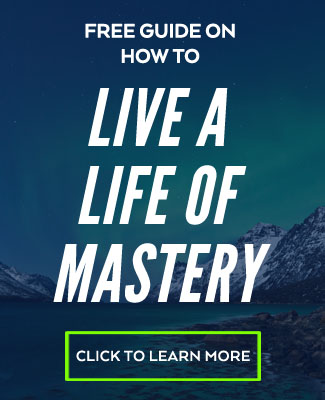7 Treasures More Valuable Than Gold

It’s impossible to overstate the value of these 7 pieces of information together. Anyone who has been exposed to these ideas has an incomparable advantage in almost every realm of life compared to someone who has not found them.
If I could go back 10 years and advise my younger self where to start in order to get the absolute most benefits in terms of being a knowledgable world-citizen and a capable person… these are the 7 pieces of information I would give me…
The information held in these volumes is comprised of the most astounding anecdotes, stories, facts, and lines of inquiry that have transformed humanity. Together these demonstrate the fundamental mechanisms of the universe, life, and existence both broadly and deeply.
First: A Powerful Tool
Probably the single most powerful tool for sophisticated rational analysis is math. I won’t dwell on this point, but it be a severe mistake to overlook the importance of this subject.
In the 16th century, Galileo put it this way, “Mathematics is the language in which God has written the universe.” That is to say that math gives us tools to peak under the curtain to the physical laws that govern everything.
You can learn all the fundamentals of math, for free, about as quickly as possible right here.
Part I. Step Back and Take it All In
This universe is an incredible place, and it’s built on some fundamental laws. These laws are really the basis for what can happen around us. It’s so crucial to at least have an idea of how the universe works because it’s genuinely special and mysterious. In fact, it seems that there are many things that we may be destined to never know.
And these 7 pieces of information can really paint a beautiful picture of what’s out there…
1) Cosmos
First, to get a conception of just how fantastically small, huge, unusual and special this place is, The Cosmos is the place to start. With incredible production quality it shows us both the grandeur and vastness of space and down to some of the smallest nuances that we can possibly find.
Perhaps most importantly it demonstrates essential critical thinking skills and how to skeptically interrogate even those things that seem obvious.
2) A Short History of Nearly Everything by Bill Bryson (Audio Book Recommended)
As excellent as Cosmos is, it’s still just the beginning. Bill Bryson’s “Short History of Nearly Everything,” really tells the story of how humanity’s knowledge has evolved over time.
He tells the stories of those pioneers of the intellect and discovery who simply couldn’t overlook the discrepancies between what they observed and how they thought things “ought” to be. These anomalies propelled their curiosity forward to look more deeply at the fabric and nature of the universe and life itself.
Here Bryson tells the story of human knowledge through the lives of the most deserving, yet unsung hero’s, of human progress… I would recommend the perfectly narrated audio-book version…
3) 12 Essential Scientific Concepts
Some people might feel comfortable in moving on to the next section from here instead of spending more time on the big picture.
However, for those really dedicated to having a better grasp on these ideas yet without having to do actual homework and test questions, I would recommend 12 Essential Scientific Concepts by The Great Courses.
Here you get a 1 hour overview of each of the foundations that really hold everything together from a more academic perspective.
Together, three texts guarantee any reader a more comprehensive scope of what really exists. This is the universe we live in. And as far as we can tell, these are the immutable laws that govern everything we do on the physical and biological level…..
… But life and success will require a lot more than knowledge of “how things are,” if we’re to live thriving lives.
Now it’s time to take a look ‘Inside’.
Part II. The Mind and Development
As complex and miraculous as the vast universe is, it gets even more interesting and intricate when we start to reflect on the nature of our own experiences.
Or the fact that we experience anything at all in the first place….
The point is this: it’s not enough to understand what’s happening around us, because arguably, what matters most is what happens within us and between us.
Thus, the benefits from studying psychology can be both profound and revealing. Perhaps the best introduction to the world of psychology, and the many ways our minds can mislead us, is Thinking Fast and Slow by Nobelaureate Daniel Kahneman.
4) Thinking Fast and Slow by Daniel Kahneman
It turns out our thinking only takes place at all due to a long chain of evolutionary events that left us with these exact brains. In other words, our minds are built on top of some ancient scaffolding.
In this book, Kahneman leads the reader through various experiences that demonstrate how our minds make predictable mistakes due to this evolutionary scaffolding.
The strength of this text is that the reader gets a real psychological experience of how his or her own mind works.
5) Your Deceptive Mind – The Great Courses
With that as an intro to the wild world of the mind, I would then turn towards Your Deceptive Mind, a gem from The Great Courses. This one equips us with the essentials of critical thinking, which are indispensable in terms of problems solving and overall capability.
Together, these two texts provide a strong footing in the world of psychology and subjectivity.
6) The Great Ideas of Psychology – The Great Courses
When it comes to learn about the mind, The Great Ideas of Psychology is a must listen. It takes us through the most significant ideas that psychological research has uncovered.
This course shows how the tools and techniques for investigating our minds have evolved throughout history.
And most importantly it overviews all the major contours of the mind. So we can see how profoundly psychology influences both our own lives and the world around us.
Overall, these three texts really open the door to a whole new level of social and self-awareness.
Part III. Putting Things Together
7) A Theory of Everything by Ken Wilber
Having taken a look at the expanse of the Cosmos and also at the inner world of the mind and experience, we can now turn towards integrating these ideas together. And Ken Wilber’s Theory of Everything probably does this more succinctly and coherently than any book out there.
There are many strengths to this text, but most notably he, 1) presents a highly functional framework for notice relationships in the physical world around us; and 2) he presents one of the most easily intelligible introductions to psychological development, a subject which many people find difficult and abstract.
More Valuable Than Gold
Here are 7 texts that encompass an absolute treasure-house of information. Anyone who can accomplish the task of finishing them all will be rewarded with awareness of self and other, critical thinkings skills, and the mental tools to solve complex problems.
Hypothetically, if we were to take an exact replica of any person on the planet, and then one of those two replicas read these 7 texts while the other did not, then the one who read them would have an undeniable advantage in terms of achieving success, enjoyment, and fulfillment.
Never has so much high quality information been available so readily at our fingertips. The knowledge here encompasses most of the most profound insights humans have ever had in regards to the universe around us, the nature of our experience, and the tools that can help us along the way.
I hope you’ll take full advantage of them and share the benefits I’ve experienced.
Comments are closed.


